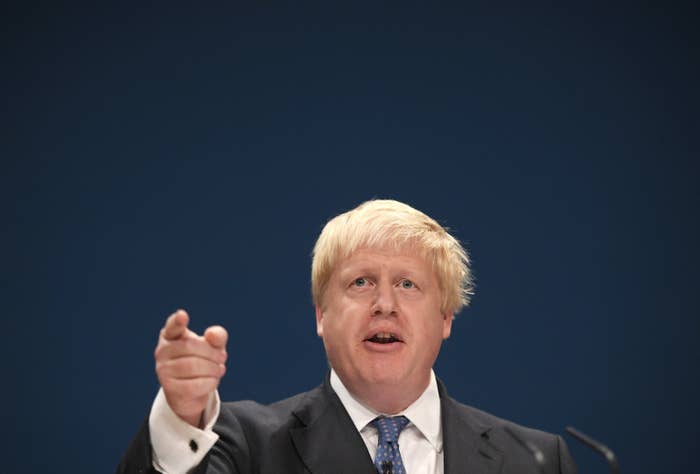
A number of European governments would find the introduction of work permits by the UK “unacceptable”, and such a move could preclude Britain from being granted even partial access to the single market as part of any transitional arrangements before a more permanent settlement is agreed with the European Union, BuzzFeed News has learned.
Although there is a sense among both EU and UK officials that in the longer term, the relationship between Britain and the 27 member states may well land on a free trade agreement (FTA), those same officials acknowledge that such a negotiation would take longer than the two years set out by Article 50 to complete. A similar deal with Canada has been in the works for seven years.
This means an interim arrangement to fill the gap between 2019, when the UK will formally exit the EU (and, as seems likely, both the single market and the customs union too), and the completion date of an FTA will need to be agreed. Some UK officials have let it be known they would like to maintain as much access to Europe's single market as possible during the transition period.
Meanwhile, UK prime minister Theresa May has made clear she will prioritise curbing immigration over remaining in the single market – a so-called hard Brexit. And to cut migration levels, UK officials have hinted that some form of work permits will inevitably have to be put in place.
But should the UK government introduce work permits immediately upon exiting the EU in two years' time, a transitional arrangement that allows some level of interim access to the single market throughout the intervening period would be problematic for some governments.
A senior EU government official told BuzzFeed News that “a possible work permit required for those who want to access the UK market (even if it does not apply for those already working or studying in the UK) does not seem acceptable since it would contradict the principle of free movement and would restrict our citizens’ rights to live and work in Britain".
They added: “In the course of the exit-negotiations the unity of the internal market, the four fundamental freedoms must be preserved. It is important for us to consider the four freedoms as inseparable founding principles; no ‘cherry picking’ is allowed, meaning that it is not possible to accept most of the freedoms (limiting access to parts of the single market) and reject the free movement of workers."
A similar warning was voiced by Malta's prime minister in an interview with Politico on Monday. He said the UK would not be able to split the single market and freedom of movement into separate negotiations.
“The feeling I get is that is unacceptable to most member states," Muscat said. "They want the single market and freedom of movement to be tackled together."
He said Malta's position was that "the four freedoms cannot be decoupled".
The 27 member states will take a joint position in response to UK proposals. It is unclear how all 27 governments would react to the introduction of work permits, but BuzzFeed News understands that the pushback among central European governments, and elsewhere, would be particularly strong. Paying for access, for example by contributing to the EU budget, is not seen as a game-changer.
Without a comprehensive transitional deal that goes beyond a short-term phasing out from existing agreements, the UK would have to revert to trading solely through the World Trade Organisation, full membership of which will require a separate negotiation, until an FTA is agreed. This would see tariffs as well as regulatory barriers and restrictions imposed on goods and services.
On Sunday, May confirmed she will kick off the process to leave the EU by April next year.
"EU to decide process after UK triggers Article 50 before end of March 2017"- @theresa_may tells @AndrewMarr9 https://t.co/8MjcLkyik5
However, any attempts to nudge European leaders to set out details of their negotiating position before Article 50 is invoked are unlikely to succeed.
PM May's declaration brings welcome clarity on start of Brexit talks. Once Art. 50's triggered, EU27 will engage to safeguard its interests
I welcome May’s announcement clarifying UK position. But negotiations can only start after the trigger of #Article50. #Brexit
BuzzFeed News understands that the thinking in Berlin is that the onus is on Britain to present a precise position after triggering Article 50, after which the 27 would then respond to the British proposals.
The priority throughout the upcoming negotiations in the German capital, and elsewhere, will be keeping the EU intact – not selling cars, as some in Britain have suggested. The aim is to avoid a precedent where one country can unpick the single market’s four freedoms (of movement of goods, services, people, and capital) and choose which rules to follow.
All the government officials BuzzFeed News has spoken to since 23 June are adamant they do not want to punish the UK for voting to leave the EU. Negotiations will not be guided by revenge, they have said, and the 27 want to cooperate as closely as feasibly possible with Britain.
But, ultimately, the interests of the EU will be put first. The feeling in the EU's major capitals is that it is Britain that voted to leave – and Britain that will have to live with the consequences of that decision.
